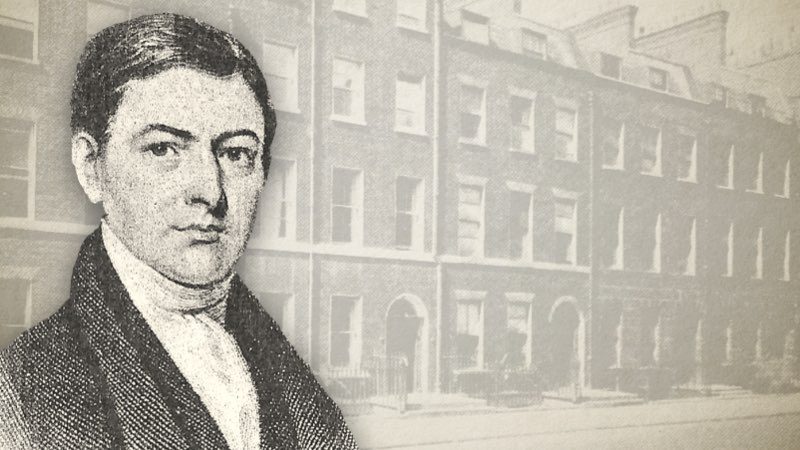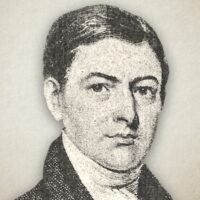
The Fishermen And The Gospel Net
“Follow Me, and I will make you fishers of men.”—Matthew 4:19
The sea is an emblem of the world. As the sea has in it various living creatures, and some monsters, so has this world. In the sea is “that leviathan” (Psalm 104:26), and in the world is Satan, “the prince of the power of the air, the spirit that now worketh in the children of disobedience” (Eph. 2:2). In the sea there are fish to be taken by net or by hook; and some that are taken are cast away as useless and destroyed. In this world sinners are gathered by the Gospel net and testimony, but all that are gathered by the preaching of the word are not saved; for to some, the Gospel is a savour of life unto life, and to others of death unto death. “The kingdom of heaven is like unto a net, that was cast into the sea, and gathered of every kind: which, when it was full, they drew to shore, and sat down, and gathered the good into vessels, but cast the bad away. So shall it be at the end of the world” (Matt. 13:47-49).
Fishermen may fitly represent preachers of the Gospel. The calling of a fisherman is mean and contemptible in the eyes of many, so is the ministerial office to many the most contemptible. I well remember, when in my state of ignorance, I viewed the servants of God as the worst beings in the world. Surely, I do not deserve the honour the Lord has conferred upon me! To be a preacher of Christ’s Gospel truly, a man must make up his mind to bear and suffer reproach; and the more successful in the Lord’s work he really is, the more reproach he is likely to meet with. It was an observation of Luther, somewhere, “that preaching that raises no persecution is not the Gospel.” The fisherman is exposed to many hardships, and meets with many disappointments. One of them complained to his Master one morning thus: “We have toiled all night, and caught nothing.” So it often is with God’s real servants; they toil hard in prayer, in searching out the mind of God in His Word, and often labour in preaching beyond their natural strength, and see but little good done by their labours. If they are a little encouraged by the weight of their net, alas! alas! the produce turns out a dog-fish, or a tongue-fish, or a fish all head!
These disappointments have not a little puzzled and tried me; and, but for the strong hand of God, I certainly should have taken up an easier trade than a fisherman’s calling long since. But such words as these are a spur to fresh exertions: “Blessed are ye that sow beside all water…” “Be instant: preach the Word in season and out of season.” “In due time ye shall reap, if ye faint not.” “The foundation of God standeth sure, having this seal. The Lord knoweth them that are His.” These words, and such like, encourage me sometimes, till, with fresh courage, I exclaim, “For Zion’s sake I will not hold my peace” (Isa. 62:1).
Also fishermen endure great hardships by storms at sea, that come on sudden and unexpected, as well as by poverty at home. So do most of the servants of God “endure hardness,” and many of them suffer much by poverty. Preaching the Gospel faithfully, and maintaining an honest conscience and deportment, is not the road to popularity and wealth. Fishermen, however they may be despised and neglected, are absolutely necessary; no fishermen, no fish—so the preachers of the Gospel are necessary, and God has promised to furnish Zion with them. “I will give you pastors according to Mine heart, which shall feed you with knowledge and understanding” (Jer. 3:15). Paul says, “How shall they hear without a preacher? and how shall they preach, except they be sent?’’ As fishermen are ordained by Providence to take the fish out of the sea, so the servants of God are ordained by the “Chief Shepherd and Bishop of souls,” set apart by the Holy Ghost, and as truly so now as they were when He said, “Separate Me Barnabas and Saul for the work whereunto I have called them.” God’s servants are instruments in His hand to gather out His elect from the world, and from lifeless professors, who have a name to live, but are dead to God, and so destitute of real religion.
Once more, there are times when fishermen cannot fish by reason of the stormy weather, so there are times in the lives of most of God’s servants when they are obliged to be silent. Penal laws and severe persecutions have silenced many of the Lord’s most highly-favoured servants, as the history of the Church proves. But if nothing of that nature should be against them, there are other things which may hinder them; as, the dreadful temptations of Satan suddenly and unexpectedly seizing them, so that their courage fails, and their strength is dried like a potsherd. The strongest man in real confidence is like a bruised reed if God leave him to the power of the enemy. But Jesus holds the stars in His right hand, and out of His hand they cannot fall, though they may not shine for a time, by reason of the clouds of darkness that cover them. Or bodily infirmities may prevent God’s servants from attending to their public work, as was the case with that blessed man of God, James Barry, the last thirty years of his life, and is now the case with a gracious servant of God, Mr. Abbott of Mayfield, Sussex. This must be a singular trial to a minister of Christ; but the ways of God are in the deep, and doubtless He does all things right, however He may exercise the faith and patience of His children.
But when fishermen cannot fish, they appear to have plenty to do, such as mending their nets, repairing their tackle, gathering bait for their lines; so, when the Lord’s servants cannot preach, they have plenty of labour. Oh, what meditation, what heart-searching, what self-examinations, what diligence, what earnest prayer to God is really necessary for a preacher of the Gospel! The preacher of Christ may work hard in the pulpit, but I believe most of God’s real sent servants find harder work out of the pulpit than they do in. It will often happen, too, that when the preacher is best pleased with his labours, his hearers are not so well pleased as he may imagine; perhaps they will cavil most when he thinks they have the least reason. These things may lead some sober-minded people to think that the situation of a preacher, like that of a fisherman, is not the most enviable in the world. But, if the preacher should grow sulky with his Master, or sluggish in his work, because of the disagreeable things attending it, he should call to mind his former engagement and prayer, which was something like this: “Lord, I do not mind what I suffer, or where I am sent, so that Thou condescend to use me as an instrument for Thy glory, and Thy people’s good.”
Again, if the fisherman make no use, or a bad use, of his leisure time, how badly is he prepared for the next opportunity to put out to sea! But his is only a temporal loss that he may sustain thereby. Ye spiritual fishermen, well repair your nets, and listen to your Master’s word, “Follow Me, and I will make you fishers of men.” If sin has defiled your conscience, and weakened your confidence—if you are brought into reproach through your unguarded and heedless conduct before the Church or the world—double your diligence, and hasten to God’s pardon office. The doors are open night and day, and over each door is written in golden letters, large and fair, “Yea, for the rebellious also!” Go, with a blushing face and an upright heart. Repent, and do the first works, or God may turn you out of His service, and leave your name and reproach as a lasting warning to wanton and slothful labourers.
The fisherman cannot be sure of success, though all things necessary be done in order thereto; but he lets go his net and his lines, patiently waiting and hoping that the result will pay him for his toils. This may teach God’s servants the necessity there is to exercise patience and hope in the midst of their many disappointments, for, as the fisherman is entirely dependent upon the providence of God for success, so are the Lord’s servants in their ministerial work entirely dependent on the Lord, both for themselves and their hearers. Who can command himself, and govern himself and his passions? And who or what human being can command the will of others? Who can bring the mind of man into sweet subjection to the laws of Christ” Paul laboured more abundantly than all the Apostles—“Yet not I” (see what humility), “but the grace of God which was with me.”
Lastly, it has been sometimes noticed that if one fisherman has been a little more successful than another, the disappointed fisherman has been moved to jealousy and envy, and has put out some hasty speeches, far enough from good nature, to insult the successful fisherman. But, my reader, this infirmity is not more common among fishermen than it is among other callings. Nay, some have thought that many blessed ministers of Christ have something of the same in their constitution. But, if the fish be caught, never mind who caught it. Lord, keep Thy servant from envy! The successful party may indeed not be blameless: their success may have led them to think and speak contemptuously of their brethren. Such should study this text, “Neither is he that planteth anything, neither he that watereth anything, but God that giveth the increase.” However, the deep study of this and many other texts is reserved for a bed of affliction, where generally the Lord teaches His servants many humbling lessons.
“Am I a servant of the Lord—
A fisherman of Jesus’ sending!
Then let me preach His faithful Word,
Or, if not so, my nets be mending.
“O Lord, the seas are rough and high,
And I can badly stand the billows;
Cast on me Thy propitious eye,
For now my harp is on the willows.
“Direct me where, and when, and how,
To preach Thy Word with true affection,
And lowly at Thy footstool bow,
To prove I’m Thine by free election.
“Lord, give Thy servants more to feel
Their helpless state, their want of all things;
Our breaches Thou alone canst heal,
And are we not too much for small things!”
Henry Fowler (1779-1838) was an Independent sovereign grace preacher and hymn writer. In 1813, he assumed responsibility for a gospel work in Birmingham. He removed to London in 1819, serving as pastor of Gower Street Chapel. The original congregation met in a chapel on Conway Street, and were followers of William Hintington’s ministry. Upon Mr. Fowler’s acceptance of the call to serve as pastor, a new chapel was built on Gower Street. This chapel (now demolished) was the predecessor to the old Gower Street Memorial chapel on Shaftesbury Avenue.




